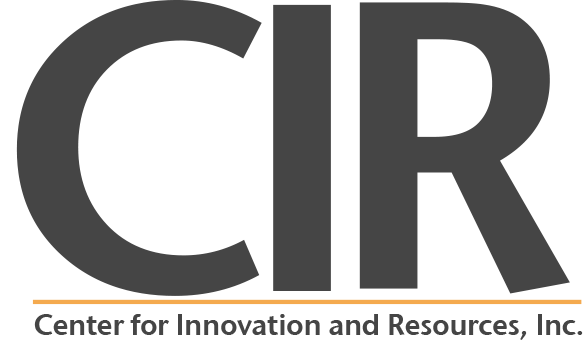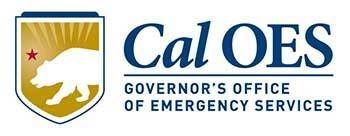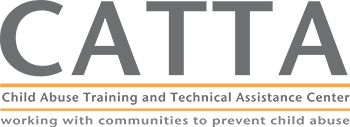Resources for Multi-disciplinary Teams/Child Advocacy Centers (MDTs/CACs) and Forensic Interviewers
During a child abuse investigation, Child Advocacy Centers or Multi-Disciplinary Interview Centers/Teams bring together law enforcement, prosecutors, social workers, medical personnel, and other professionals to conduct a forensic interview of an abused child. The child forensic interviewer ensures that the child is asked age-appropriate questions, and the team ensures that the forensic interviewer gathers accurate and forensically sound information that will be admissible in court.
Peer Review Resources
The Protocol and Beyond: A Forensic Interviewer's Guide for Peer and Self Review | Download PDF
El Protocolo y Más Allá: Guía del Entrevistador Forense Para la Autoevaluación y la Evaluación Entre Compañeros | Download PDF
Minimum Standards Protocol
The California Children’s Justice Act Task Force (CJA) is dedicated to improving the investigation and prosecution of child abuse crimes in California. To that end, this multi-agency task force developed the Minimum Standards Protocol for the Investigation of Child Abuse and Neglect (MSP).The MSP identifies the key concerns and issues that should be addressed when developing a written investigative protocol for child abuse cases. The MSP was first developed in the early 1990’s after a series of transfer of knowledge workshops across the state. The MSP has been revised over the years to acknowledge concerns with drug endangered children and children exposed to domestic violence.
Introduction to the MSP Program | Download PDF
California Minimum Standards Protocol | Download PDF
Minimum Standards Protocol Checklist | Download PDF
Interviewing of Spanish-Speaking Children
Spanish-Speaking Forensic Interviewer Recruitment Brochure
The Forensic Interviewer Recruitment Brochure assists Child Advocacy Centers and Multi-Disciplinary Interview Centers/Teams (MDIC/Ts) in recruitment efforts for Spanish-speaking Child Forensic Interviewers.
Spanish Forensic Interviewer Recruitment Brochure | Download PDF
Guide for the Forensic Interviewing of Spanish-Speaking Children
This guide provides helpful insights and strategies for persons interviewing Spanish-speaking monolingual and bilingual children. It also includes useful information for interpreters and suggestions for how multidisciplinary interview teams can work together to obtain the best results.
Download the English Version of this Guide | Download PDF
Download the Spanish Version of this Guide | Download PDF
Child Sexual Abuse and Children with Disabilities
Research shows that children with disabilities are abused 3.4 times more often than children without disabilities. CATTA has worked with experts on the topics to develop the following documents for Parents and Professionals.
Information for Parents Brochure | Download PDF
Information for Parents Brochure (in Spanish) | Download PDF
Children with Disabilities and Sexual Abuse Fact Sheet for Professionals | Download PDF
Sexual Abuse Amongst Students with Disabilities: Resources for Educators | Download PDF
Children with Developmental Disabilities: A Training for First Responders | Download PDF
Special Considerations and Techniques for Interviewing Children with Special Needs | Download PDF
Working with the African American Community
First, it is important to note that the African American* community is not monolithic. There are vast differences in experiences, thoughts/opinions, and in the ways in which historical trauma has manifested. AND it is still important to understand some of the central themes that one may encounter when working with this community as well as the sociological context in which these themes occur. The information discussed here should not be used to make assumptions but instead as a cognitive template when working with the community.
A Strength-Based and Trauma-Informed Approach to Working with the African American Community | Download PDF
CSEC: Meeting Victims Where They Are
CSEC youth experience significant abuse, trauma, and neglect and may present with various manifestations of their trauma. Responding to CSEC requires a trauma-informed and survivor-centered philosophy.
Commercial Sexual Exploitation of Children (CSEC): Meeting Victims Where They Are | Download PDF
Racial Trauma, Healing, Resiliency Home Learning
To access the Racial Trauma, Healing, Resiliency Home Learning Worksheet, click here.
Haircare Tip Sheet for Black Foster Youth
Haircare can impact the behaviors, emotions, and self-esteem of Black foster youth who are already susceptible to experiencing higher rates of depression and PTSD, the psychological impact of low self-esteem. These resources sheets, specifically designed for Service Providers and Caregivers, cover the significance of haircare for Black youth in out-of-home placement, and take into consideration the abuse and neglect foster children are exposed to both prior to entering systems of care, and include trauma-informed methods for addressing this issue with foster youth, biological parents and relatives, caregivers, and social workers.
Download Tip Sheet for Caregivers
Download Tip Sheet for Providers
Body Talk: A Tool for Parents and Caregivers
Other Organizations
- American Professional Society on the Abuse of Children (APSAC) and the California Chapter (CAPSAC)
- The mission of APSAC is to improve society’s response to the abuse and neglect of its children by promoting effective interdisciplinary approaches to identification, intervention, treatment, and prevention of child maltreatment.
- Children's Advocacy Centers of California (CACC)
- CATTA and CIR work closely with the CACC, a membership organization dedicated to helping local communities respond to allegations of child abuse in ways that are effective and efficient – and put the needs of child victims first. CACC is an accredited chapter of the National Children's Alliance (NCA). NCA provides financial support grants, training, and national accreditation for child advocacy centers and state chapters.
- Midwest Regional Children's Advocacy Center
- MRCAC provides training and technical assistance to professionals involved in the investigation, prosecution, and treatment of child abuse.
- National Children's Advocacy Center
- Located in Huntsville, Alabama, the NCAC revolutionized the United States’ response to child sexual abuse. Since its creation in 1985, the NCAC has served as a model for Children’s Advocacy Centers now operating in the United States and in more than 27 countries throughout the world.
- Western Regional Children's Advocacy Center
- WRCAC provides training and technical assistance to professionals involved in the investigation, prosecution, and treatment of child abuse.



